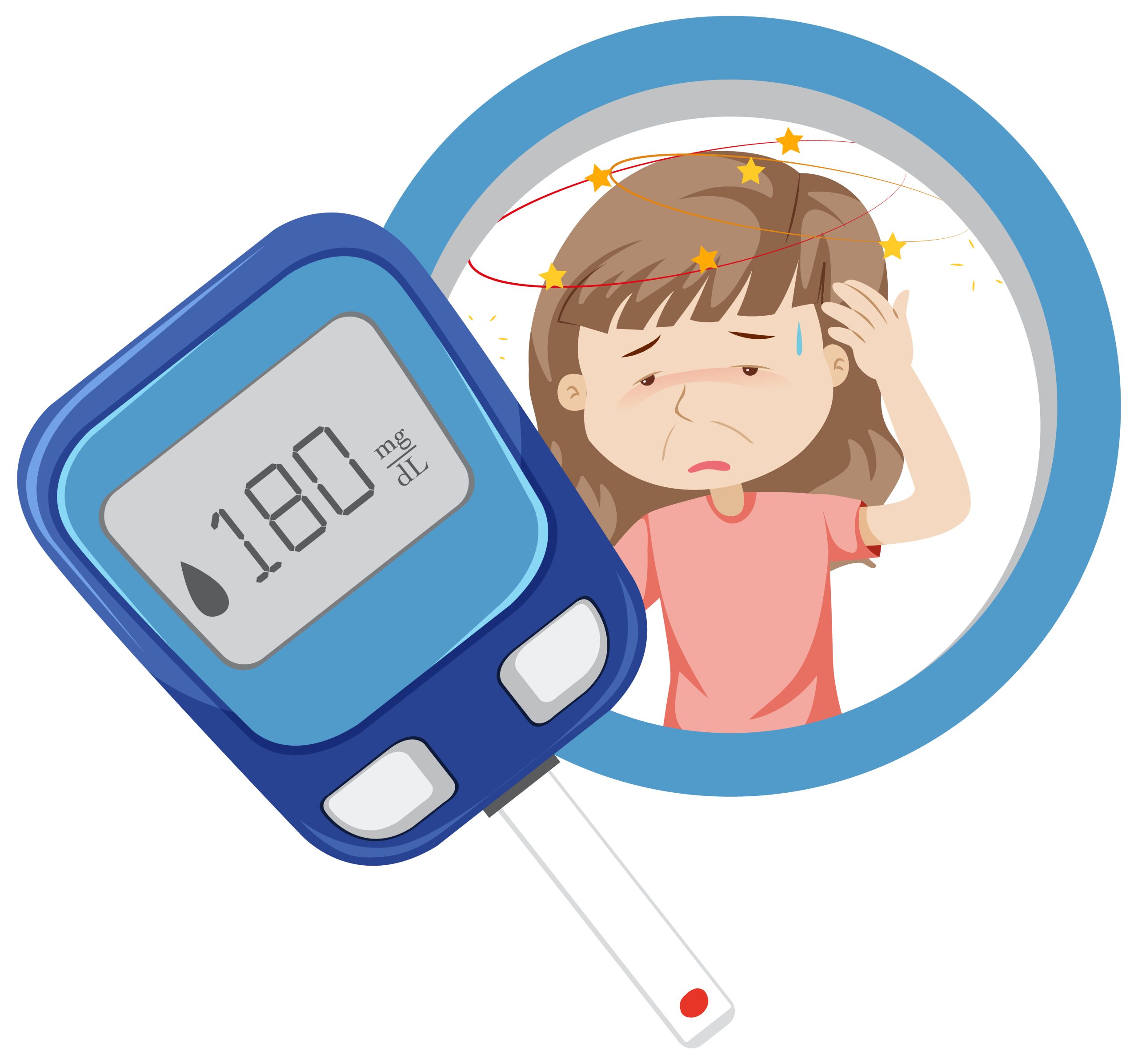
Understanding insulin resistance: Mechanisms and implications
14 Jun 2024
Ever thought about what keeps your body going 24×7? It’s all that sugar! Sugar is fuel for your body. It’s quite interesting how our bodies break down food and sugars for this energy, but when this process is disrupted, a lot of problems can arise. Obviously, the body can’t function without its fuel. It falls under the category of what you can call “Insulin Resistance” and that’s exactly what we’re here to talk about today.
Let’s get to know Insulin Resistance
Glucose is the fuel that provides energy to your body. But when glucose enters your bloodstream, it can’t directly convert itself into energy. It needs the help of a hormone produced by your pancreas: Insulin. It helps glucose enter your muscle, fat, and liver cells so they can use it for energy or store it for later.
Now, when the cells in your body don’t respond to insulin the way they should, it’s called Insulin Resistance. It means they’re unable to take up glucose from your blood or store it. It can be both temporary and chronic.
Naturally, this will mean that your glucose levels remain elevated. As a result, the pancreas tries to overcome the problem by making more insulin which may lead to something called hyperinsulinemia.
As your pancreas produces enough insulin to fix your cells’ weak insulin response, your blood glucose can stay in a safe range. However, if your cells become too resistant to insulin, it may lead to hyperglycemia, or high blood sugar levels. Eventually, leading to type 2 diabetes or diabetes.
What is insulin sensitivity?
Insulin sensitivity means how well your body reacts to insulin. Being insulin sensitive means your cells can very well absorb sugar from your blood using insulin. When this process works smoothly, your glucose levels stay within range. Poor insulin sensitivity is when your cells are less responsive to insulin. It can lead to high blood sugar levels and increase your risk of type 2 diabetes.
What are the causes of insulin resistance?
While the exact cause of insulin resistance has not been discovered yet, there have been some answers to what it could be. For instance several types of genes, the age group and more. However, the major factors contributing to insulin resistance are considered having excess body fat and not doing enough physical activity.
Other causes of insulin resistance could be:

- Consuming a carb-rich diet
- Having excess body fat, specifically around the belly
- Physical inactivity
- Health issues like NAFLD
- Smoking
- Family history of diabetes
- Having gestational diabetes
- If you’re over 45 years of age
- Taking certain medications
- Sleeping disorders like sleep apnea
- If you have hormonal disorders
What are the symptoms of insulin resistance?
There’s a chance you won’t get any insulin resistance symptomsif your pancreas increases insulin production every time you have insulin resistance. This keeps your sugar levels in a safe and healthy range.
But, there’s a probability that your insulin resistance may worsen over time and your insulin-producing cells may wear out. Due to this, your pancreas may no longer be able to make enough insulin in response to the resistance. It eventually leads to high glucose levels and also shows insulin resistance symptoms.
But a lot of times, symptoms are not visible, which is why, especially in the case of insulin resistance, it is recommended to get a blood test.
Here are some insulin resistance symptoms:
- Frequent urge to urinate
- Increased hunger and thrust
- A blurry vision
- Having infections
- Experiencing headaches
- Having cuts and sores that heal slowly
Experiencing insulin resistance for a long time can also lead to prediabetes (when your blood sugar levels are higher than normal but not high enough to fall under the diabetic range). Prediabetes can be tricky because you may have it for years and still have no clue about it. It stays invisible until it finally progresses into type 2 diabetes. Pre-diabetic people may experience the following insulin resistance symptoms:
- Skin tags
- Dark armpit skin or on your neck
- Eye problems leading to diabetes-related retinopathy
If you are experiencing any of these symptoms, it’s best to consult a healthcare professional as soon as possible.
What is the treatment for Insulin Resistance?
All the factors that induce insulin resistance in your body cannot be treated, such as age-related factors, and genetic factors. Therefore, making some lifestyle changes can help because those are the factors in your control. Following are the things you can try for insulin resistance treatment:
- Healthy diet
Try eliminating unhealthy foods, processed foods and carbohydrate-rich foods from your diet. These can make yourinsulin resistanceworse and create more complications. Instead, opt for healthy options such as lean proteins, grains, fruits and veggies, and fish. If needed, you can also take the help of a nutritionist to develop a diet suitable to your body. - Exercising
When you exercise regularly, it improves your glucose and energy usage. You should aim for at least 150 minutes of moderate-intensity exercise weekly. You can also try activities like swimming, cycling, or running to keep yourself active. - Weight loss
Keeping your weight in check also plays a major role in yourinsulin resistance. Losing extra weight can help treatinsulin resistance, it can also reduce the onset of type 2 diabetes.
Through these lifestyle modifications, you may see changes like:
- Better insulin sensitivity (lowinsulin resistance)
- The blood pressure decreases
- Good cholesterol levels increase
- Bad cholesterol levels decrease
- Blood glucose levels lower down
Conclusion
Fixing insulin resistance may look like a daunting task, but with compassion and determination, you can overcome it. By opting for lifestyle modifications like eating healthy and staying active, you can make a lot of difference in your health.
Always look on the positive side. Instead of wondering what could go wrong, ask yourself, “What if things go right?,” and then wait for the change to happen. In the end, it will be worth all the effort. We, at TatvaCare, are committed to providing comprehensive care to patients dealing with insulin resistance. You can watch this space for informational blogs on insulin resistance. You can also download and sign up for a free account on our patient healthcare app, GoodFlip. It is your personal assistant and guide in your journey towards wellness. On the app, you can enjoy many digital healthcare services including easy lab test bookings, vitals monitoring, and medication reminders. You can also join personalized diet and excercise coaching by experts and achieve your helath goals. For any queries and feedback, or to simply learn about our services, you can call us on +919974042363 or write to us at support@tatvacare.in.

Medically reviewed by
Dr. Devina Aswal 
MBBS, DDM, FCR, CIC
Recent Blog
- Virtual Twin Patients: What Indian Doctors Can Learn from the Future of Surgical Planning
- Can AI Deskill Doctors? The Lancet Warns of Risks – Here’s How You Stay in Control
- What India’s AI Push Means for Small Clinics
- Top 5 Myths Doctors Believe About Going Digital and Why They’re Wrong
- Clinic Burnout Is Real, Here’s How EMR Can Help Without Getting in the Way…
Archives
Categories
- Asthma (20)
- Diabetes (15)
- Fatty Liver (20)
- High Blood Pressure (2)
- High cholesterol (2)
- Hypertension (2)
- Insulin Resistance (1)
- Obesity (8)
- PCOS (6)
- TatvaPractice (18)
Let’s Connect
Quick contact
